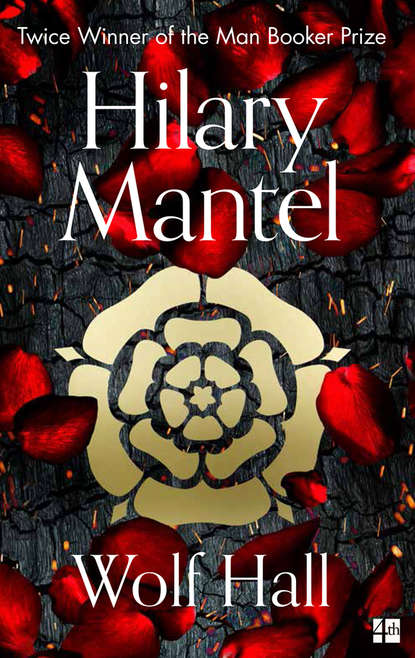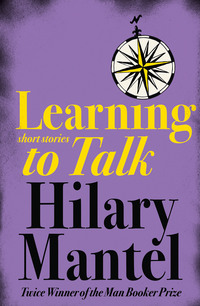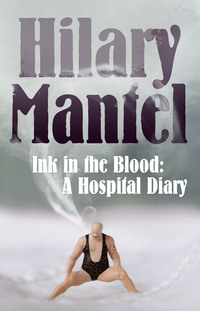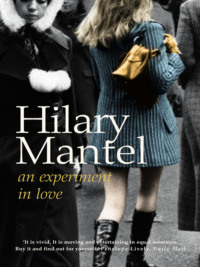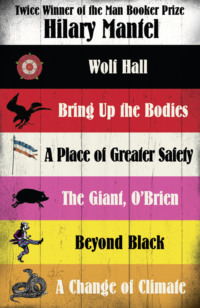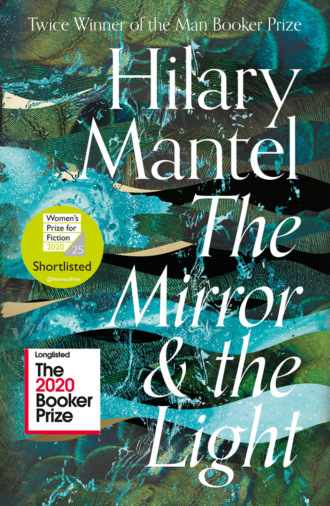
Полная версия
The Mirror and the Light
‘But you are far younger than my lord Norfolk.’ Gregory turns to the duke, the better to inform him. ‘My father is in sound health, if you except his special fever, which he got when he was in Italy. It is true he works long hours, but he believes long hours never killed anybody, he often says so. His doctor says you couldn’t fell him with a cannonball.’
By now the witnesses have seen the late queen nailed down and are packing in at the open doors. The city officers jostle, keen for a word with him. One question in their mouths: Master Secretary, when shall we see the new queen? When will Jane do us the honour? Will she ride through the streets, or sail in the royal barge? What arms and emblems will she take as queen, and what motto? When may we notify the painters and artificers and set them to work? Will there be a coronation soon? What present can we make her, that will find favour in her eyes?
‘A bag of money is always acceptable,’ he says. ‘I do not think we will see her in public till she and the king are married, but that will not be long. She is pious in the old style and any banners or painted cloths depicting the angels and saints, and the Holy Virgin, will be well-accepted by her.’
‘So,’ says the Lord Mayor, ‘we can look out what we have had in store since Queen Katherine’s time?’
‘That would be prudent, Sir John, and save the city’s funds.’
‘We have the life of St Veronica in panels,’ an elderly guildsman says. ‘On the first, she stands weeping by the route to Calvary, as Christ bears his cross. On the second –’
‘Of course,’ he murmurs.
‘– on the second, the saint wipes the face of our Saviour. On the third, she holds up the bloody cloth, and there we may see the image of Christ, printed clearly in his precious blood.’
‘My wife observed,’ says Constable Kingston, ‘that this morning the lady left aside her usual head-dress, and chose the style the late Katherine favoured. She wonders what she meant by it.’
Perhaps it was a courtesy, he thinks, from a dying queen to a dead one. They will be meeting this morning in another country, where no doubt they will have much to tell.
‘Would that my niece had imitated Katherine in other particulars,’ Norfolk says. ‘Had she been obedient, chaste and meek, her head might still be on her shoulders.’
Gregory is so amazed that he takes a step back, into the Lord Mayor. ‘But my lord, Katherine was not obedient! Did she not defy the king’s will year after year, when he told her to go away and be divorced? Did you yourself not go down to the country to enforce her, and she slammed into her chamber and turned the key, so you were obliged to spend the twelve days of Christmas shouting through a door?’
‘You’ll find that was my lord Suffolk,’ the duke says shortly. ‘Another useless dotard, eh, Gregory? That’s Charles Brandon over there – the mighty fellow with the big beard. I am the stringy fellow with the bad temper. See the difference?’
‘Ah,’ Gregory says, ‘I remember now. My father enjoyed the tale so much, we performed it as a play at Twelfth Night. My cousin Richard played my lord Suffolk, wearing a woolly beard to his waist. And Mr Rafe Sadler put on a skirt and played the queen, insulting the duke in the Spanish tongue. And my father took the part of the door.’
‘I wish I had seen it.’ Norfolk rubs the tip of his nose. ‘No, I tell you, Gregory, I honestly do.’ He and Charles Brandon are old rivals, and enjoy each other’s embarrassments. ‘I wonder what you’ll play this Christmas?’
Gregory opens his mouth and closes it again. The future is a curious blank. He, Cromwell, intervenes, before his son attempts to fill it. ‘Gentlemen, I can tell you what the new queen will take as her motto. It is Bound to Obey and Serve.’
There is a murmur of approbation that runs right around the room. Brandon’s big laugh booms out: ‘Better safe than sorry, eh?’
‘So say we all.’ Norfolk tips back his canary wine. ‘Whoever crosses the king in the years ahead, gentlemen, it will not be Thomas Howard here.’ He stabs a finger into his own breastbone, as if otherwise they might not know who he is. Then he slaps Master Secretary on the shoulder, with every appearance of comradeship. ‘So what now, Cromwell?’
Don’t be deceived. Uncle Norfolk is not our comrade or our ally or our friend. He is slapping us to appraise how solid we are. He is eyeing the Cromwell bull-neck. He is wondering what sort of blade you’d need, to slice through that.
It is ten when they break away from the company. Outside, sunlight is dappling the grass. He walks into shadow, his nephew Richard Cromwell by his side. ‘Better see Wyatt.’
‘You are well, sir?’
‘Never better,’ he says flatly.
It was Richard himself who, a few days back, had walked Thomas Wyatt to the Tower, without display of force, without armed men: taking him into custody as easily as if they were taking a riverside stroll. He had requested the prisoner be shown every courtesy, and be kept in a pleasant gatehouse chamber: to which the gaoler Martin now leads the way.
‘How is this prisoner?’ he asks.
As if this prisoner were just anyone, instead of what Wyatt is – as dear to him as any person now living.
Martin says, ‘It seems to me, sir, he is in much disquiet of mind about those five gentlemen who lost their heads the other day.’
The gaoler makes it sound incidental, like losing a hat. ‘I dare say Master Wyatt wonders why he was not among them. And so he paces, sir. Then he sits, a paper before him. He looks as if he will write, but not a word goes down. He doesn’t sleep. Up in the dead hour, calling for lights. Pulls up his stool to the table, sharpens his pen; six o’clock, broad day, you fetch in his bread and ale and there’s his paper blank and the candle still burning. Wasteful, that.’
‘Let him have lights. I will pay for what he needs.’
‘Though I say this – he is a very gentleman. Not proud like those we had over the other side. Henry Norris – “Gentle Norris”, they called him, but he spoke to us as if we were dogs. That’s how you can tell a true gentleman – when he is in peril of his life, he still speaks you fair.’
‘I’ll remember, Martin,’ he says gravely. ‘How’s my god-daughter?’
‘Rising two – can you believe it?’
The week Martin’s daughter was born he had been at the Tower to visit Thomas More. It was early days in their contest; he still hoped More would concede a point to the king and save his life. ‘You’ll stand godfather?’ Martin had asked him. He chose the name Grace: after his youngest daughter, dead some years now.
Martin says, ‘We cannot watch a prisoner every minute. I am afraid Mr Wyatt might destroy himself.’
Richard laughs merrily. ‘What, Martin, have you never had a poet in your prison? One who sighs heavy and sleeps short hours, and when he prays he prays in verse? A poet may be melancholy but I tell you, he will look after himself as well as the next man. He must have food and drink to tempt his appetite, and if he has an ache or a twinge you will hear about it.’
‘He writes a sonnet if he stubs a toe,’ he says.
‘Poets prosper,’ Richard says. ‘It is their friends who sustain the hurt.’
Martin announces them with a discreet tap, as if they were in a lord’s private suite. ‘Visitors, Mr Wyatt?’
The room is full of dancing light, and the young man sits at a table in full sun. ‘Move, Wyatt,’ Richard says. ‘The rays illuminate your scalp.’
He forgets how ruthless the young are. When the king says, ‘Am I going bald, Crumb?’ he says, ‘The shape of your Majesty’s head would please any artist.’
Wyatt runs his palm across his fine fair hair. ‘It’s going fast, Rich. By the time I am forty no woman will look at me except to try to crack my skull with an egg spoon.’
Wyatt could as easily laugh as cry this morning, and it would mean nothing either way. Still alive when five other men are dead, still alive and astonished to be so, he is poised on the edge of devastating pain – like a man who is teetering on a spike, a toehold his only support. It is a sort of interrogation method he has heard of, though never had need to perform. You rope the prisoner to a beam, his arms crossed behind his back: his body hangs in space, supported by this one exquisite inch. If he moves, or you jerk his foot away, his whole weight drops onto his arms and his shoulders are dislocated. That part of the procedure should be unnecessary. You don’t want to disable him; you just want to keep him there, balanced, till he has satisfied you with answers.
‘We have had our breakfast, anyway,’ he says. ‘Constable Kingston is such a blunderer that we expected mouldy bread.’
‘It is a novelty for him,’ Wyatt says. ‘A queen of England to behead, and five of her lovers. A man does not do it every week.’
He is swaying, he is swaying, on the spike: soon he will slip and cry out. ‘So it’s done, I suppose? Or you would not be here with me.’
Richard crosses the room. He stands over Wyatt and looks down at the nape of his bent neck; he rubs his shoulder, friendly and firm like a man with his favourite dog. Wyatt is unmoving, his face in his hands. Richard glances up: are you going to tell it, sir?
He inclines his head to his nephew: you tell it.
‘She made a brave end,’ Richard says. ‘She spoke short and to the point, asking forgiveness, praising the king’s mercy, and offering no extenuation.’
Wyatt looks up. His face is dazed. ‘She accused no one?’
‘It was not for her to accuse,’ Richard says gently.
‘But you know Anne’s spirit. And she was kept here long enough, she had time to think and plan. She must have thought,’ his blue eyes flick sideways, ‘here I lie a prisoner, and where is the evidence against me? She must have prayed for the five men who went out to die, and she must have wondered, why is Wyatt not one of them?’
‘Surely,’ he says, ‘she would not have wanted to see your head in the street? I know all love was lost between you, and I know she was a creature of supreme malice, but surely she would not have wished to add to the number of men she has ruined?’
‘I did not assume that,’ Wyatt says. ‘She might have thought it was justice.’
He wants Richard to lean forward, and place his hand firmly over Wyatt’s mouth.
‘Tom Wyatt,’ he says, ‘let us have an end of this. You may think confession would ease your mind, and if that is what you think, send for a priest, say what you must, get your absolution and pay him for silence. But do not for God’s sake confess to me.’ He adds, softly, ‘You have come so far. You have done the difficult thing. You spoke when you should speak. Now speak no more.’
‘You must not indulge yourself,’ Richard says. ‘It would be at our expense. My uncle has walked a knife-edge for you. The king’s suspicion of you was such that no one but my uncle could have dispelled it, for the king would not have listened, but killed you with the rest. Besides …’ He looks up. ‘Sir, may I tell him? The court did not need the evidence you gave us. Your name did not arise. The lady’s brother convicted himself out of his own mouth, sniggering at the king in the very face of the court, and saying that despite the valour he claims, Henry lacks all skill and vertu to do the deed with a woman.’
‘Yes,’ he says, to Wyatt’s incredulous face, ‘this is the fool George Boleyn was, and I had to deal with him for years.’
‘And George’s wife,’ Richard says, ‘made a written deposition against him, testifying she had seen him kiss his sister with his tongue in her mouth. Describing the hours they were alone together, behind a closed door.’
Wyatt has edged his stool back from the table. He raises his face to the sun and the light washes away all expression.
‘And Anne’s women,’ Richard says, ‘gave statements against her. All the comings and goings in the dark. So it was enough, without your help. They have witnessed her tricks these two years and more.’
Oh, Jesus, he thinks, let’s stop this now. He takes a wad of folded papers out of his jacket and drops them on the table. ‘Here is your testimony. Do you want to destroy it yourself, or shall I do it?’
‘I will,’ Wyatt says.
He thinks, Wyatt doesn’t trust me: still, even now. God knows, I have not played him false. This last week, hour by hour, he has traded for Wyatt’s life. What he has offered Henry is Wyatt’s knowledge of the accused queen. Whether the knowledge was carnal – he has never asked Wyatt that, and never will. He assured the king it was not – though not in so many words. If he has misled Henry, better not to know. He says to Wyatt, ‘I told your father I’d look after you. I have.’
‘Indebted,’ Wyatt says.
Outside, the red kites are skimming over the Tower walls. The king did not choose to display the heads of Anne’s lovers on London Bridge; in case he decides to ride through with his new wife, he wants to keep his capital tidy. The kites, therefore, are cheated of their prey; no doubt, he says to Richard, that’s why they’re yearning for Tom Wyatt.
Richard says, ‘You see how it is. A very proper man, Wyatt. Even his gaolers are in love with him. His pisspot admires him, for deigning to use it.’
‘Martin was angling to know what will happen to him.’
‘Aye,’ Richard says, ‘before he becomes too attached. And what will?’
‘He is safe where he is for now.’
‘Are the arrests finished? Was he the last?’
‘Yes, I think so.’
‘Is it over, then?’
‘Over? Oh, no.’
Thomas Cromwell is now fifty years old. The same small quick eyes, the same thickset imperturbable body; the same schedules. He is at home wherever he wakes: the Rolls House on Chancery Lane, or his city house at Austin Friars, or at Whitehall with the king, or in some other place where Henry happens to be. He rises at five, says his prayers, attends to his ablutions and breaks his fast. By six o’clock he is receiving petitioners, his nephew Richard Cromwell at his elbow. Master Secretary’s barge takes him up and down to Greenwich, to Hampton Court, to the mint and armouries at the Tower of London. Though he is a commoner still, most would agree that he is the second man in England. He is the king’s deputy in the affairs of the church. He takes licence to enquire into any department of government or the royal household. He carries in his head the statutes of England, the psalms and the words of the Prophets, the columns of the king’s account books and the lineage, acreage and income of every person of substance in England. He is famous for his memory, and the king likes to test it, by asking him for details of obscure disputes from twenty years back. He sometimes carries a sprig of dried rosemary or rue, and crumbles it in his palm as if inhaling the scent would help him. But everyone knows it is only a performance. The only things he cannot remember are the things he never knew.
His chief duty (it seems just now) is to get the king new wives and dispose of the old. His days are long and arduous, packed with laws to be drafted and ambassadors to beguile. He goes on working by candlelight through summer dusks, through winter sunsets when it is dark by half past three. Even his nights are not his to waste. Often he sleeps in a chamber near the king and Henry wakes him in the small hours and asks him questions about treasury receipts, or tells him his dreams and asks what they mean.
Sometimes he thinks he would like to marry again, as it is seven years since he lost Elizabeth and his daughters. But no woman would tolerate this kind of life.
When he gets home, young Rafe Sadler is waiting for him. He pulls off his cap at the sight of his master. ‘Sir?’
‘Done,’ he says.
Rafe waits, eyes on his face.
‘Nothing to tell. A prayerful end. The king?’
‘We hardly saw him. Went between bedchamber and oratory and spoke with his chaplain.’ Rafe is in the king’s privy chamber now, his liaison man. ‘I thought I should come in case you have any message for him.’
Verbal message, he means. Something better not committed to ink. He thinks about it. What do you say to a man who has just killed his wife? ‘No message. Get home to your wife.’
‘Helen will be glad to know the lady is beyond her misfortunes now.’
He is surprised. ‘She does not pity her, does she?’
Rafe looks uneasy. ‘She thinks that Anne was a protector of the gospel, and that cause is, as you know, near my wife’s heart.’
‘Oh, well, yes,’ he says. ‘But I can protect it better.’
‘And besides, I think, with women, when something happens to one of them, all of them feel it. They are more pitiful than us, and it would be a harsh world if they were not.’
‘Anne was not pitiful,’ he says. ‘Have you not told Helen how she threatened me with beheading? And she was planning, as we now know, to cut short the life of the king himself.’
‘Yes, sir,’ Rafe says, as if he is humouring him. ‘That was stated in court, was it not? But Helen will ask – forgive me, from a woman it is a natural question – what will happen to Anne Boleyn’s little daughter? Will the king disown her? He can’t be sure he is her father, but he can’t be sure he is not.’
‘It hardly matters,’ he says. ‘Even if Eliza is Henry’s child, she is still a bastard. As we now learn, his marriage to Anne was never valid.’
Rafe rubs the crown of his head so that his red hair stands up in a tuft. ‘So as his union with Katherine was not valid either, he has never been married in his life. Twice a bridegroom yet never a husband – has it ever happened to a king before? Even in the Old Testament? Please God Mistress Seymour will go to work and give him a son. We cannot seem to keep an heir. The king’s daughter by Katherine, she is a bastard. His daughter by Anne, she is a bastard. Which leaves his son Richmond, who of course has always been a bastard.’ He squashes on his hat. ‘I’m going.’
He skitters out, leaving the door open. From the stairs he calls, ‘I’ll see you tomorrow, sir.’
He gets up, shuts the door; but he lingers, his hand on the wood. Rafe grew up in his house, and he misses his constant presence; these days he has his own house, his own young family in it, new duties at court. It is his pleasure, to make Rafe’s career. He is as dear to him as a son could be, dutiful, dogged, attentive and – the vital point – liked and trusted by the king.
He resumes his desk. It is only May, he thinks, and already two queens of England are dead. Before him is a letter from Eustache Chapuys, the Imperial ambassador; though it is not a letter Eustache intended for his desk, and its news must be already out of date. The ambassador is using a new cipher, but it should be possible to see what he is saying. He must be rejoicing, telling the Emperor Charles that the king’s concubine is living her last hours.
He works at the letter till he can pick out the proper names, including his own, then turns to other business. Leave it for Mr Wriothesley, the prince of decipherers.
When bells are ringing for evening prayer across the city, he hears Mr Wriothesley down below, laughing with Gregory. ‘Come up, Call-Me,’ he shouts; and the young man takes the stairs two at a time and strides in, a letter in his hand. ‘From France, sir, from Bishop Gardiner.’ To be helpful, he has opened it already.
Call-Me-Risley? It is a joke that dates from the time when Tom Wyatt had a full head of hair; from when Katherine was queen, and Thomas Wolsey ruled England, and he, Thomas Cromwell, used to sleep at nights. Call-Me skipped in one day to Austin Friars – a fine-drawn young man, lively and nervous as a hare. We took a look at his slashed doublet, feathered cap, gilt dagger at his waist; how we laughed. He was handsome, able, argumentative and prepared to be admired. At Cambridge Stephen Gardiner had been his tutor, and Stephen has much to teach; but the bishop has no patience, and something in Call-Me craves it. He wants to be listened to, he wants to talk; like a hare, he seems alert to what’s happening behind him, half-knowing, half-guessing, always on edge.
‘Gardiner says the French court is buzzing, sir. The gossip is that the late queen had a hundred lovers. King François is amused.’
‘I’m sure.’
‘So Gardiner asks – as England’s ambassador, what am I to tell them?’
‘You can write to him. Tell him what he needs to know.’ He considers. ‘Or perhaps a little less.’
The French imagination will soon supply any detail Stephen lacks: what the late queen did, and with whom, and how many times and in what positions. He says, ‘It is not good for a celibate to be excited by such matter. It is up to us, Mr Wriothesley, to save the bishop from sin.’
Wriothesley meets his eye and laughs. Now he is out of the realm, Gardiner depends on Call-Me for information. The master must await the pleasure of his pupil. Wriothesley has a position, Clerk of the Signet. He has an income, and a pretty wife, and basks in the king’s good graces; at this moment, he has Master Secretary’s attention. ‘Gregory seems happy,’ he says.
‘Gregory is glad to have got through the day. He has never witnessed such an event. Not that any of us have, of course.’
‘Our poor monarch,’ Call-Me says. ‘His good nature has been much abused. Two such women no man ever suffered, as the Princess of Aragon and Anne Boleyn. Such bitter tongues. Such cankered hearts.’ He sits down, but on the edge of his stool. ‘The court is anxious, sir. People wonder if it is over. They wonder what Wyatt has said to you, that is not placed on record.’
‘They may well wonder.’
‘They ask if there will be more arrests.’
‘It is a question.’
Wriothesley smiles. ‘You are a master at this.’
‘Oh, I don’t know.’ He feels tired. Seven years for the king to get Anne. Three years to reign. Three weeks to bring her to trial. Three heartbeats to finish it. But still, they are his heartbeats as well as hers. The effort of them must be added to all the rest.
‘Sir,’ Call-Me leans forward. ‘You should move against the Duke of Norfolk. Work his discredit with the king. Do it now, while you have him at a disadvantage. The chance may not come again.’
‘I thought the duke was very pleasant to me this morning. Considering we were killing his niece.’
‘Thomas Howard will speak as pleasant to his foe as to his friend.’
‘True.’ The Duchess of Norfolk, from whom the duke is estranged, has often used the same words: or worse.
‘You would think,’ Call-Me says, ‘that with both Anne and his nephew George disgraced, he would creep away to his own country and be ashamed.’
‘Shame and Uncle Norfolk are not acquainted.’
‘Now I hear he is pressing for Richmond to be made heir. He reasons, if my son-in-law becomes king, and my daughter sits on the throne beside him, all England will be under my Howard thumb. He says, “Since all Henry’s three children are now bastards, we may as well prefer the male – at least Richmond can sit a horse and draw a sword, which is better than the Lady Mary, who is dwarfish and sick, and Eliza, who is still of an age to soil herself in public.”’
He says, ‘No doubt Richmond would be a fine king. But I don’t like the thought of this Howard thumb.’
Mr Wriothesley’s eyes rest on him. ‘The Lady Mary’s friends are ready to bring her back to court. When Parliament is called they expect her to be named heir. They are waiting for you to keep your promise. They expect you to turn the king her way.’
‘Do they?’ he says. ‘You astonish me. If I made any promise, it was not that.’
Call-Me looks rattled. ‘Sir, the old families united with you, they helped you bring the Boleyns down. They did not do it for nothing. They did not do it so Richmond could be king and Norfolk rule all.’
‘So I must choose between them?’ he says. ‘It seems from what you say that they will fight each other, and one party will be left standing, either Mary’s friends or Norfolk. And whoever has the victory, they will come after me, don’t you think?’
The door opens. Call-Me starts. It is Richard Cromwell. ‘Who were you expecting, Call-Me? The Bishop of Winchester?’
Imagine Gardiner, rising through the floor with a sulphur whiff; lashing out with his cloven hooves, sending the ink flying. Imagine drool running from his chin, as he upturns the strongboxes, and snouts through the contents with a rolling, fiery eye. ‘Letter from Nicholas Carew,’ Richard says.


